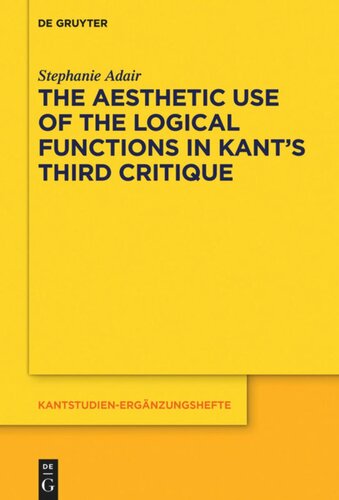

Most ebook files are in PDF format, so you can easily read them using various software such as Foxit Reader or directly on the Google Chrome browser.
Some ebook files are released by publishers in other formats such as .awz, .mobi, .epub, .fb2, etc. You may need to install specific software to read these formats on mobile/PC, such as Calibre.
Please read the tutorial at this link: https://ebookbell.com/faq
We offer FREE conversion to the popular formats you request; however, this may take some time. Therefore, right after payment, please email us, and we will try to provide the service as quickly as possible.
For some exceptional file formats or broken links (if any), please refrain from opening any disputes. Instead, email us first, and we will try to assist within a maximum of 6 hours.
EbookBell Team

0.0
0 reviewsIn the third Critique Kant details an aesthetic operation of judgment that is surprising considering how judgment functioned in the first Critique. In this book, I defend an understanding of Kant’s theory of Geschmacksurteil as detailing an operation of the faculties that does not violate the cognitive structure laid out in the first Critique. My orientation is primarily epistemological, elaborating the determinations that govern the activity of pure aesthetic judging that specify it as a "bestimmte" type of judgment without transforming it into "ein bestimmendes Urteil". I focus on identifying how the logical functions from the table of judgments operate in the pure aesthetic judgment of taste to reveal "the moments to which this power of judgment attends in its reflection" (CPJ, 5:203). In the course of doing so, a picture emerges of how the world is not just cognizable in a Kantian framework but also charged with human feeling, acquiring the inexhaustible, inchoate meaningfulness that incites "much thinking" (CPJ, 5:315). The universal communicability of aesthetic pleasure serves as the foundation that grounds robust intersubjective relations, enabling genuine connection to others through a shared a priori feeling.